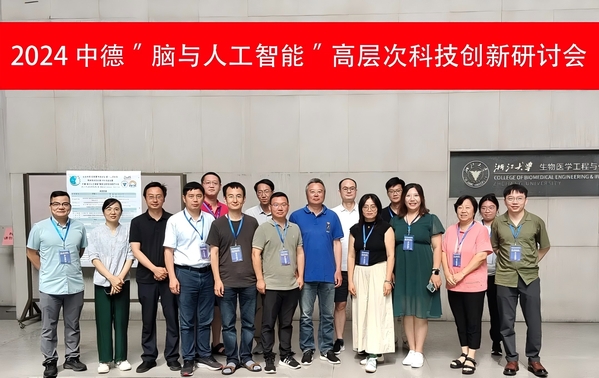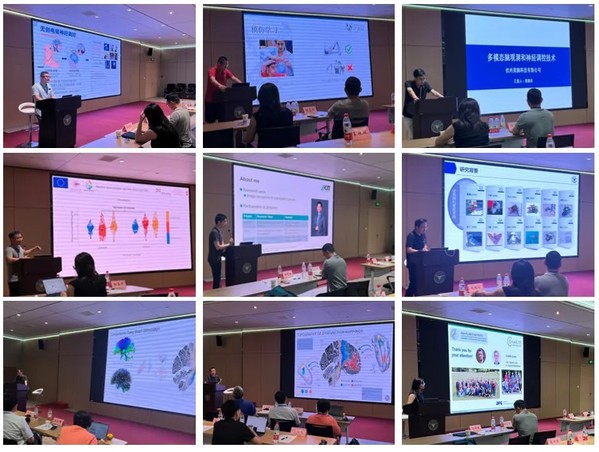On August 22, 2024, the College of Biomedical Engineering & Instrument Science (CBEIS) successfully hosted the 12th Lv Weixue Academic Forum in conjunction with the 285th West Lake Academic Forum and Sino-German Scientific Innovation Symposium on Brain and Artificial Intelligence in Hangzhou, China.

This symposium was jointly organized by CBEIS and the Office of Sci-tech Research, and co-hosted by Qiushi Academy of Advanced Studies (QAAS) of Zhejiang University and Westlake Institute for Optoelectronics (WIOE). The event received support from several professional societies and academies focused on computational science, biomedical engineering, and neuroscience.
Prominent attendees included Professor Hong Zhou from CBEIS, Chief Physician Yuehui Ma from the First Affiliated Hospital of Zhejiang University, Professors Neguan Zheng and Weidong Chen from QAAS, Researcher Li Zhao from CBEIS, Dr. Jiadong Pan from BraInward Co., Ltd., and Young Researcher Minmin Wang from WIOE. Additionally, several experts from Germany specializing in neuroregulation and brain-computer interfaces were invited guests. The event attracted over 50 faculty members, students, and industry representatives from across China focused on neuroregulation and BCIs.

The discussion sessions were chaired by Professors Hong Zhou, Yuehui Ma, and Neguan Zheng, Researcher Li Zhao, and Vice President Jiahua Xu of the Chinese Association of Scholars in Computer Science in Germany. Attendees presented reports on foundational and applied research in neuroregulation and brain-machine intelligence, showcasing new advancements, achievements, and breakthroughs. Topics covered included the application of functional near-infrared spectroscopy brain imaging, closed-loop neuroregulation, deep brain stimulation, personalized and multimodal neuroregulation, animal brain-computer intelligence, and the development of digital platforms for brain science. These discussions aimed to explore collaborative innovation methods to promote the development of brain and artificial intelligence fields.
The concluding interactive session saw lively exchanges among presenters, experts, and students on the future trends and challenges of neuroregulation technology and BCIs, providing valuable insights for attendees.
The symposium fostered exchange and cooperation between top Chinese universities and scholars who studied in Germany, broadening perspectives and expanding directions within the field. It significantly promotes cross-disciplinary innovation in neuroregulation and BCI in China.
